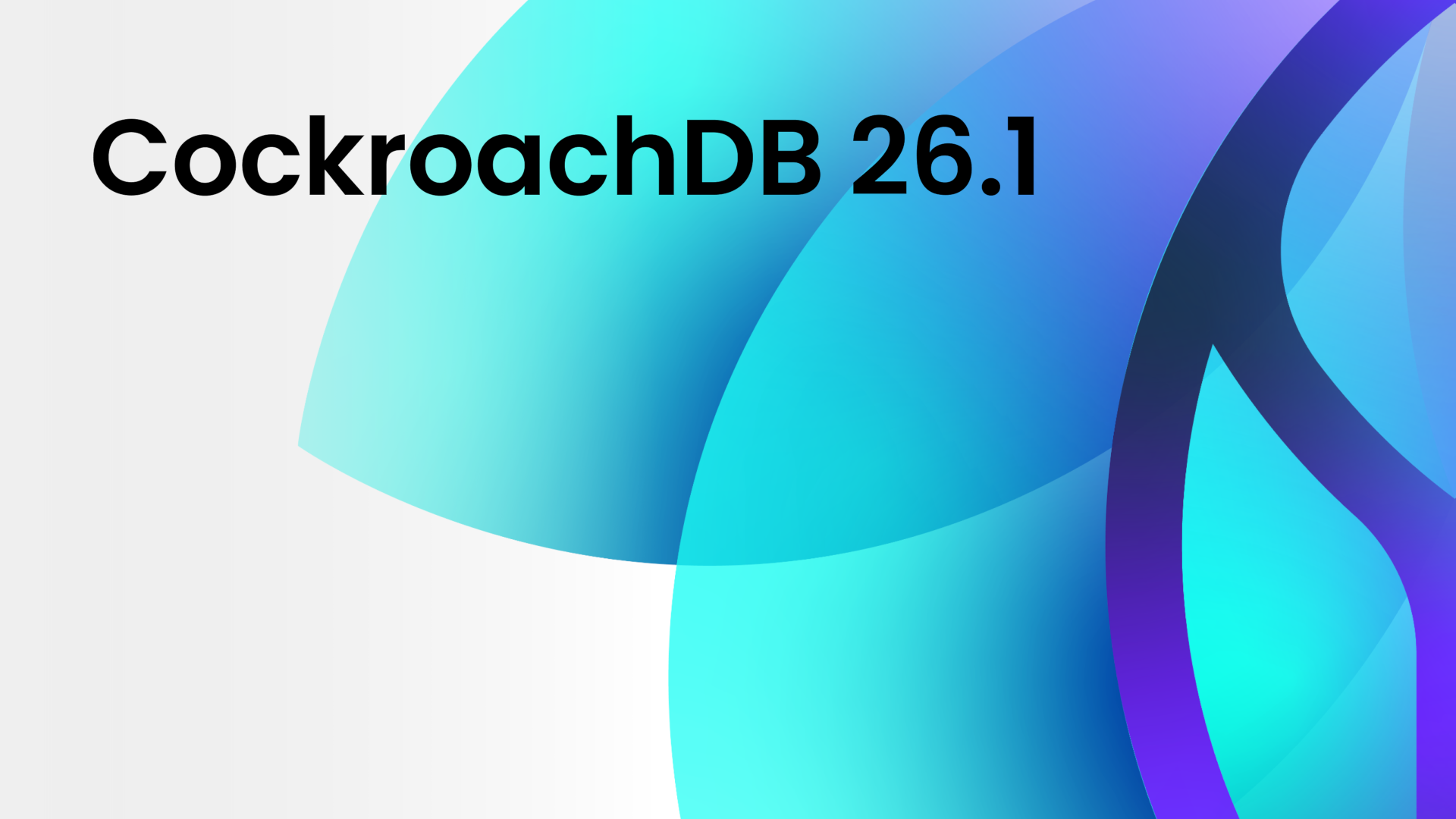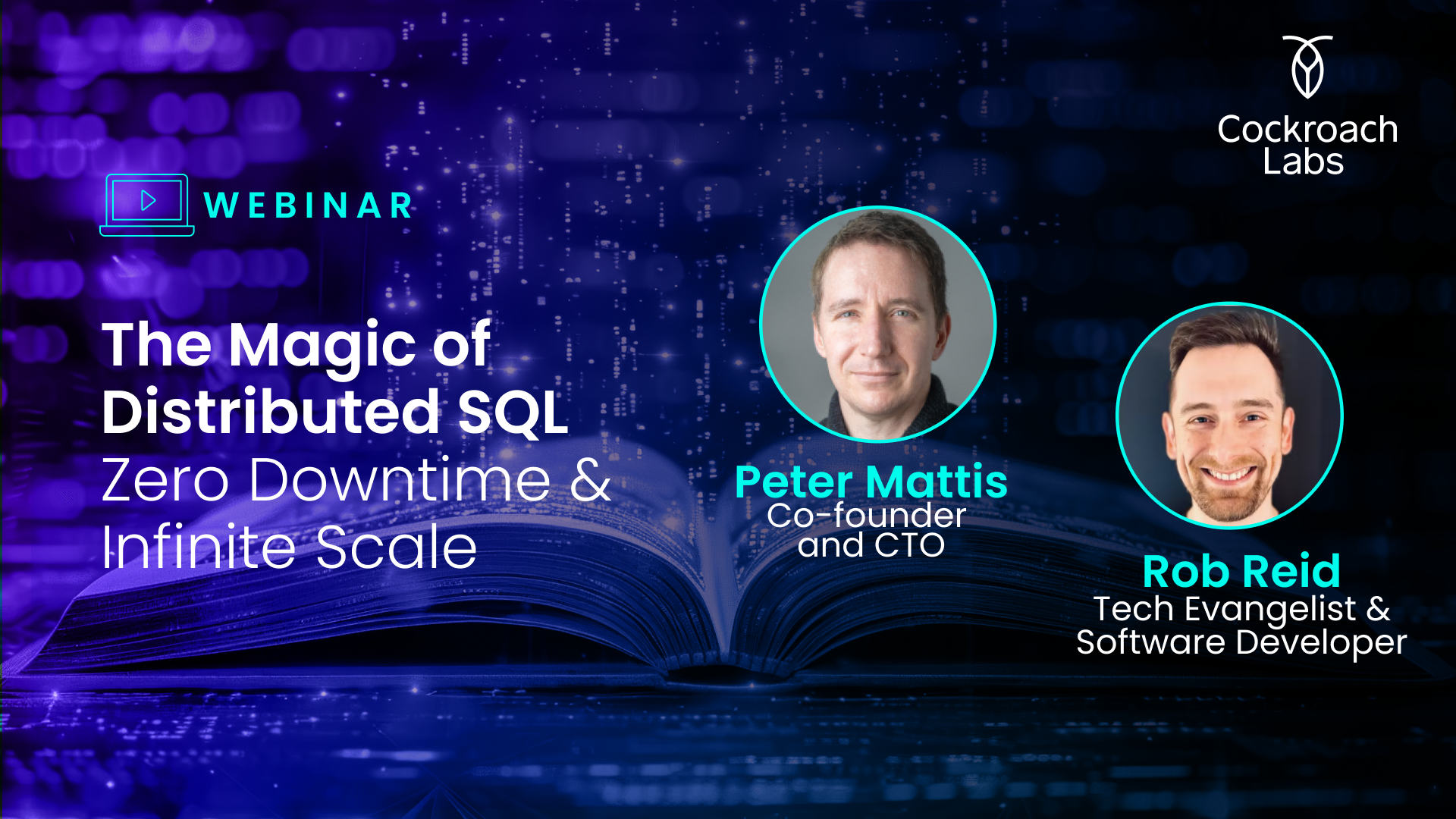
Blog
Product

Product
Bringing Application-Level Observability to CockroachDB: Query Tagging
Building mission-critical applications on CockroachDB demands robust observability. In complex, microservices-oriented architectures, it can be especially hard to correlate activity and pinpoint problems between different application services and the database layer.

Kevin Ngo
February 6, 2026
Application Resilience
ai
Product
How CockroachDB’s AI Assistance Boosts Developer Productivity
CockroachDB users don’t all show up in the same place or follow the same path. Some are just starting to evaluate distributed SQL. Others are deep in implementation details, or they may already be operating cloud-based clusters. A growing number are building day-to-day with an AI coding assistant open alongside their editor.

Kiki Carter
February 5, 2026
Product
CockroachDB v26.1: Going Deep on Security and Compliance for our Most Demanding Customers
Enterprise security is a key factor in reducing cost-of-ownership and getting new solutions into production efficiently. With CockroachDB v26.1, available as of February 3rd in CockroachDB Cloud and February 18th for CockroachDB self-hosted, we are introducing security improvements that help organizations integrate CockroachDB more seamlessly with their existing security infrastructure.

David Bressler
February 3, 2026
Banking & Fintech
ai
Product
How to Simulate Resilient, Real-Time Anomaly Detection with CockroachDB and Kafka
When it comes to real-time applications, resilience isn't a nice-to-have, it’s a necessity. In this post, we’ll walk through a live demo designed to stress-test CockroachDB’s ability to detect anomalies in a stream of financial transactions. Along the way, we’ll simulate production traffic, observe latency under load, and scale our detection pipeline on the fly.

Rob Reid
January 26, 2026
Scale & Resilience
Product
Mastering Physical Cluster Replication for Disaster Recovery with CockroachDB
In today's data-driven world, the continuity of database operations is not just a technical requirement; it's a cornerstone of business success. For applications built on CockroachDB, the inherent resilience provided by its distributed architecture and Raft replication offers a strong foundation for high availability. However, even with this robust fault tolerance, a comprehensive disaster recovery (DR) plan is essential to safeguard against unforeseen, large-scale incidents.

Sai Kiran Kshatriya
December 22, 2025
Database Modernization
Product
Protobuf Changefeeds: Native, Typed CDC without the Glue Code
Change data capture (CDC) is the backbone of modern data platforms: Event-driven microservices, real-time analytics, incremental ELT, and operational alerts all depend on a reliable stream of change events. CockroachDB has long supported CDC with native changefeeds and familiar output formats like JSON and Avro. Now we’re adding Protocol Buffers (Protobuf) as a first‑class serialization option. If your organization standardizes on Protobuf for Kafka and downstream services, you’ll be able to plug CockroachDB in without glue code or format converters.

Rohan Joshi
November 25, 2025
Product
Introducing Value Separation in CockroachDB 25.3 for Improved Performance
Data architects are on the lookout for ways to maximize resources, while also keeping costs predictable and manageable. The right database plays a central role in achieving both – delivering better performance, scalability, and resilience without breaking the budget.

Dipti Joshi
October 23, 2025
Product
CockroachDB 25.3: PCI and HIPAA readiness on Azure, a new Kubernetes operator, improved Oracle migrations
Even better performance, smoother migrations, and heightened compliance are central to CockroachDB 25.3.

David Bressler
August 12, 2025
Engineering
ai
Product
Real-Time Indexing for Billions of Vectors: How we built fast, fresh vector indexing at scale in CockroachDB
Read on to learn how we combined recent academic research with practical engineering to solve the semantic search problem at massive scale, with fresh, real-time results, by leveraging CockroachDB’s unique distributed architecture.

Andy Kimball
June 23, 2025
Scale & Resilience
Database Modernization
Product
For my next (engineering) trick: Minimizing TCO with distributed SQL
Today, distributed SQL databases are redefining what’s possible for modern, global businesses. Recently, Peter Mattis, co-founder, CTO, and CPO of Cockroach Labs, and technical evangelist, Rob Reid, hosted a webinar called “The Magic of Distributed SQL: Zero Downtime & Infinite Scale.” Below, we recap the key ideas from the session and how they tie to the future of data infrastructure.

Becca Weng
June 10, 2025








